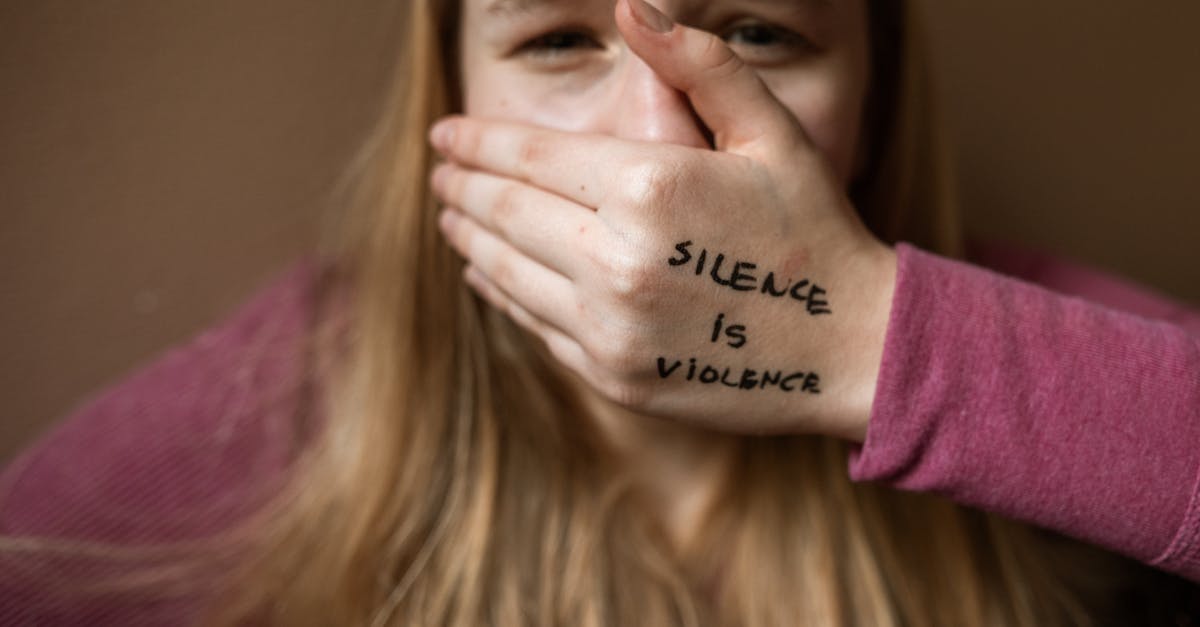Mental illness is a complex and often misunderstood topic. While awareness and understanding have improved in recent years, the stigma surrounding mental health issues continues to have a profoundly negative impact on those who are affected. This blog post aims to address the issues of mental illness stigma and provide strategies for breaking down these harmful perceptions.
Definition of Mental Illness
Mental illness refers to a wide range of conditions that affect a person’s thoughts, emotions, behavior, and overall mental well-being. These can include, but are not limited to, depression, anxiety, bipolar disorder, schizophrenia, post-traumatic stress disorder (PTSD), and obsessive-compulsive disorder (OCD). Mental illnesses can vary in severity and can have a significant impact on an individual’s ability to function in daily life.
Prevalence of Mental Illness
According to the World Health Organization (WHO), mental health conditions affect approximately one in four people worldwide at some point in their lives. In the United States, it is estimated that nearly 50 million adults (or 20% of the adult population) live with a mental illness.
Misconceptions About Mental Illness
Despite the prevalence of mental health issues, there are still many misconceptions and myths surrounding them. Some of the most common misconceptions include:
- Mental illness is a sign of weakness or personal failure.
- People with mental illness are dangerous or unpredictable.
- Mental illness is a lifelong, untreatable condition.
- Mental illness is a result of poor upbringing or lack of willpower.
These misconceptions can contribute to the stigma and discrimination that individuals with mental illness often face.
Overview of Stigma Surrounding Mental Illness

Stigma can be defined as a negative or discriminatory attitude towards a particular group or individual based on a perceived trait or characteristic. In the context of mental illness, stigma can take many forms, including:
Social Stigma
Social stigma refers to the negative attitudes and stereotypes that society holds towards those with mental health issues. This can lead to discrimination, social isolation, and a reluctance to seek help.
Self-Stigma
Self-stigma occurs when an individual with a mental illness internalizes the negative attitudes of society and begins to believe that they are somehow inferior or unworthy.
Structural Stigma
Structural stigma refers to the policies, laws, and institutional practices that perpetuate the marginalization of individuals with mental illness. This can include barriers to accessing healthcare, employment opportunities, and housing.
Intersectional Stigma
Intersectional stigma occurs when an individual’s mental illness is compounded by other marginalized identities, such as race, gender, or socioeconomic status. This can lead to even greater barriers and challenges.
Effects of Stigma on Individuals

The stigma surrounding mental illness can have a profound and far-reaching impact on those who are affected. Some of the ways in which stigma can negatively impact individuals include:
Mental Health Outcomes
Stigma can exacerbate the symptoms of mental illness, leading to worsening of conditions and poorer overall mental health outcomes.
Barriers to Seeking Help
Stigma can deter individuals from seeking the help and support they need, as they may fear being labeled or judged by others.
Social Isolation and Exclusion
Stigma can lead to social isolation, as individuals with mental illness may be excluded from social and community activities.
Discrimination and Marginalization
Stigma can lead to discrimination in various areas of life, such as employment, housing, and healthcare, further marginalizing those with mental health issues.
Internalized Shame and Low Self-Esteem
Stigma can lead individuals with mental illness to internalize negative perceptions and develop feelings of shame, guilt, and low self-worth.
Strategies to Break the Stigma
Breaking the stigma surrounding mental illness requires a multi-faceted approach that addresses the issue at both the individual and societal levels. Here are some strategies that can help:
Education and Awareness
Increasing public education and awareness about mental health is crucial in challenging misconceptions and promoting understanding. This can involve:
- Campaigns and initiatives to destigmatize mental illness.
- Incorporating mental health education into school curricula.
- Providing training and resources for healthcare professionals, employers, and community leaders.
Promoting Positive Representation
The portrayal of mental illness in media and popular culture can have a significant impact on public perceptions. Promoting positive, nuanced, and accurate representations of individuals with mental health issues can help to challenge stereotypes and humanize the experience.
Encouraging Open Dialogue
Creating safe and supportive spaces for open dialogue about mental health can help to reduce shame and encourage individuals to seek help. This can involve:
- Encouraging individuals to share their personal stories and experiences.
- Hosting community events and support groups.
- Promoting mental health awareness and advocacy initiatives.
Advocating for Policy Change
Advocating for policy changes that address the structural and institutional barriers faced by individuals with mental illness can help to reduce stigma and promote greater inclusion. This can include:
- Advocating for improved access to mental healthcare and support services.
- Pushing for anti-discrimination laws and policies.
- Challenging the criminalization of mental illness.
Fostering Empathy and Understanding
Ultimately, breaking the stigma of mental illness requires a shift in societal attitudes and a greater emphasis on empathy, understanding, and compassion. By cultivating these qualities, we can work towards a more inclusive and supportive environment for those affected by mental health issues.
Personal Stories and Testimonials
To further illustrate the impact of mental illness stigma and the importance of breaking it down, here are some personal stories and testimonials from individuals who have experienced it firsthand:
“I Felt Ashamed to Seek Help”
“For years, I suffered in silence with my depression, too afraid to seek help because of the stigma surrounding mental illness. I was convinced that if I admitted to struggling, I would be seen as weak or ‘crazy.’ It wasn’t until a close friend urged me to get help that I finally mustered the courage to see a therapist. The process of opening up and confronting my mental health challenges was incredibly difficult, but it was also the first step towards my recovery. I now realize that seeking help for my mental health was one of the bravest things I’ve ever done, and I wish I had done it sooner.”
“Losing My Job Due to My Anxiety”
“When I was first diagnosed with an anxiety disorder, I was terrified that my employer would find out and use it as a reason to let me go. Sure enough, a few months later, I was called into my manager’s office and informed that my position was being eliminated due to ‘business needs.’ I knew the real reason was because of my mental health issues. I felt humiliated, ashamed, and completely powerless. It took me a long time to find another job, and the experience left me with deep scars and a reluctance to be open about my mental health in the workplace.”
“The Isolation of Bipolar Disorder”
“Living with bipolar disorder has been a constant battle. The extreme mood swings, the manic episodes, the deep depressions – it can be utterly exhausting, both physically and emotionally. But what’s been even more challenging is the isolation I’ve felt due to the stigma surrounding my condition. Too many people view bipolar disorder as a personal failing or a sign of weakness. I’ve lost friends and had family members distance themselves because they don’t understand what I’m going through. It’s heartbreaking to feel so alone in your struggle, especially when you’re already dealing with such intense emotions and challenges. I wish more people would educate themselves and be willing to provide support and understanding.”
These personal stories illustrate the very real and often devastating impact that stigma can have on individuals with mental illness. By sharing these experiences, we can work towards greater empathy, compassion, and a more inclusive society.
Resources and Support for Those with Mental Illness
For those struggling with mental health issues, there are numerous resources and support services available. Here are just a few:
Mental Health Organizations:
- National Alliance on Mental Illness (NAMI)
- American Psychological Association (APA)
- Mental Health America (MHA)
Helplines and Crisis Resources:
- National Suicide Prevention Lifeline: 1-800-273-8255
- Crisis Text Line: Text HOME to 741741
- SAMHSA National Helpline: 1-800-662-4357
Online Support Communities:
- Reddit’s r/mentalhealth subreddit
- NAMI’s online discussion groups
- Anxiety and Depression Association of America’s online forums
Therapy and Counseling Services:
- Online therapy platforms (e.g., BetterHelp, Talkspace)
- Local mental health clinics and providers
- Employee Assistance Programs (EAPs)
Support for Specific Conditions:
- Depression and Bipolar Support Alliance
- Anxiety and Depression Association of America
- National Eating Disorders Association
Remember, you are not alone in your struggle, and there are many resources and support services available to help you on your journey towards better mental health.
Conclusion
The stigma surrounding mental illness is a complex and deeply rooted issue, but it is one that we must continue to confront and work to dismantle. By increasing awareness, promoting positive representation, encouraging open dialogue, advocating for policy change, and fostering empathy and understanding, we can work towards a more inclusive and supportive society for those affected by mental health issues.
Through the personal stories and testimonials shared in this blog post, we have seen the very real and devastating impact that stigma can have on individuals. It is crucial that we listen to these voices, validate their experiences, and use them to drive meaningful change.
Ultimately, breaking the stigma of mental illness is not just a noble goal, but a necessary step towards ensuring that all individuals have access to the support, resources, and compassion they need to thrive. By working together, we can create a world where mental health is valued, understood, and treated with the same care and importance as physical health.

